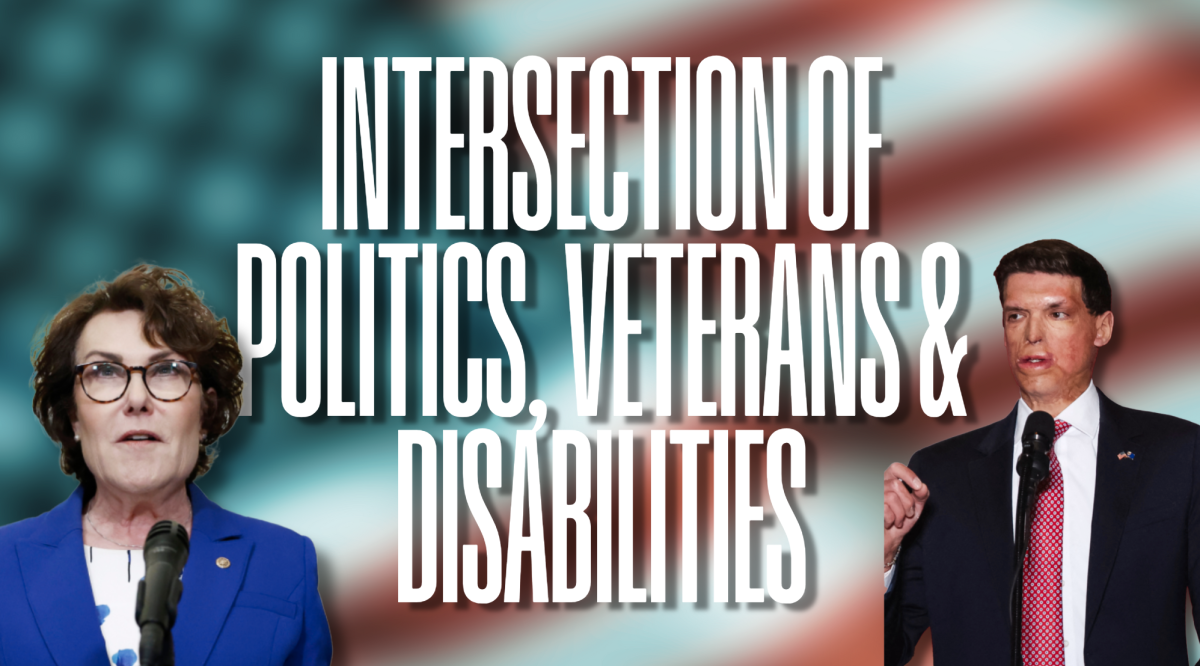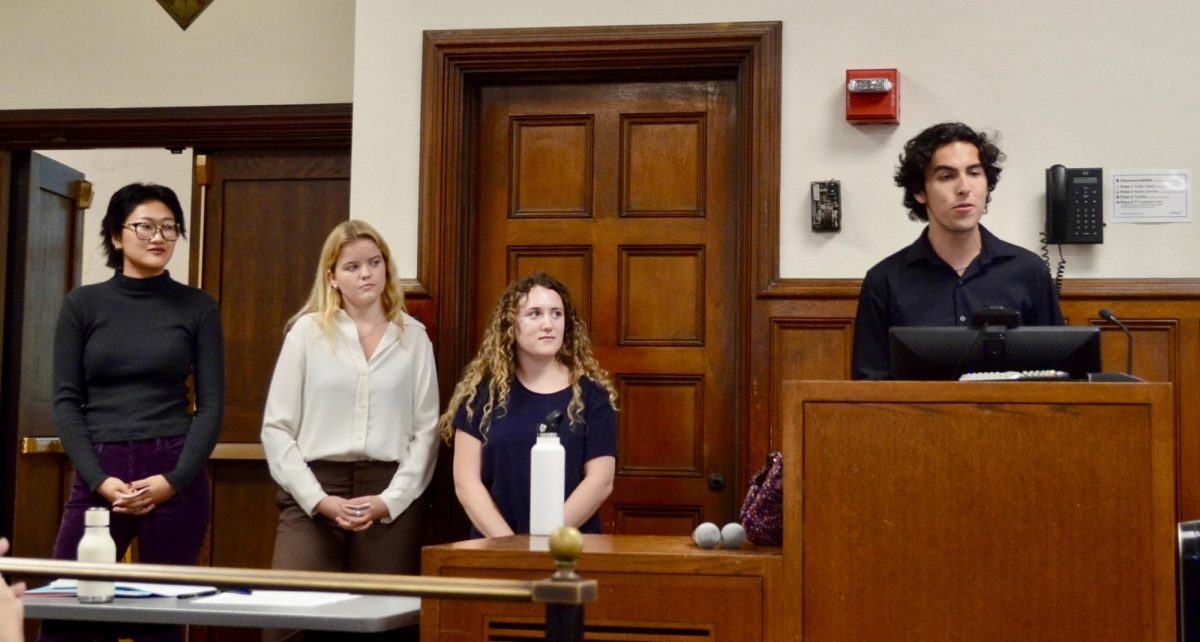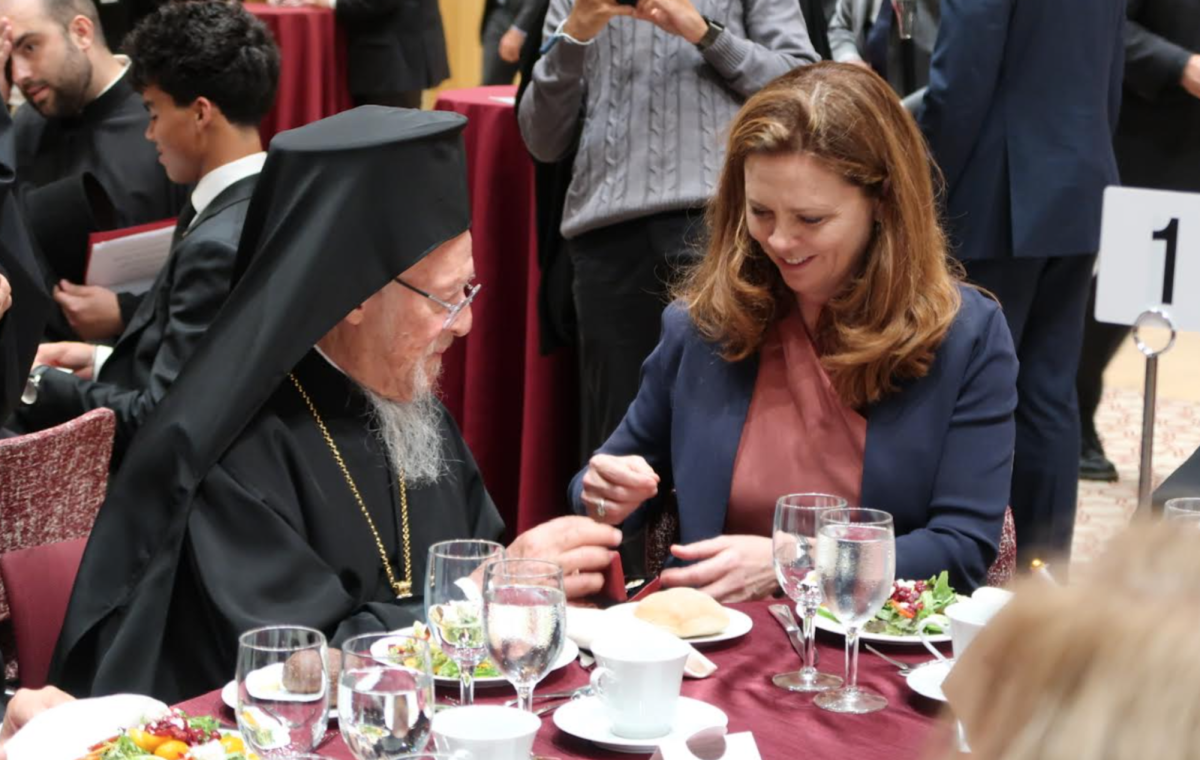By EDDIE MIKUS
STAFF WRITER
Recently, Campus Ministry hosted a series of events to promote awareness among Fordham students about human trafficking as a worldwide issue.
The events, which were conducted as part of a larger campaign by an organization known as New York City Price of Life, consisted of a panel discussion titled “Laboring Against Injustice” and a lecture titled “What’s The Price Of Life?”
Additionally, Campus Ministry organized a trip to the Price of Life Freedom Festival in New York City.
Katie Anderson, the assistant director of Campus Ministry for Liturgy, told The Fordham Ram in an interview that it is often difficult for people to know when they encounter trafficking, even though the practice is widespread in the production of commonplace goods.
“I think one of the things about human trafficking is that people who are trafficked can fly under the radar,” Anderson said. “So we might not be aware of the ways in which people might be coerced into doing a particular job or trapped in a particular place.”
Anderson said that at Fordham often it can be hard to know if a product was made through a traffiking company.
“So it’s hard to know what members of Fordham’s community may have had interactions with people who are trafficked,” she said. “However, that being said, it’s a really safe bet that the products and the foods that we consume, at somewhere in the supply train, someone who was trafficked may have been involved.”
Anderson also told The Fordham Ram that most people have a misconceived notion about what trafficking is.
The practice is defined by the United Nations Convention Against Transnational Organized Crime as “the recruitment, transportation, transfer, harboring or receipt of persons, by means of the threat or use of force or other forms of coercion, of abduction, of fraud, of deception, of the abuse of power or of a position of vulnerability or of the giving or receiving of payments or benefits to achieve the consent of a person having control over another person, for the purpose of exploitation.”
“I think that if you ask most people what’s human trafficking, they might get an image in their head of a girl in Thailand who’s kidnapped and works in a brothel,” Anderson said. “That might be their impression, but human trafficking actually happens in almost every country of the world and in all sectors of our economy.”
Anderson went on to add examples of people who suffer through these conditions each day.
“Some people are working in sweatshops or factories where they’re paid pennies,” she said. “Some people are migrant workers who work in the agricultural industry. Maybe their employer provides housing for them, but it’s really bottom of the barrel.”
To describe how an actual trafficking scheme might work, Anderson referenced a recent high-profile trafficking incident where Nepalese workers were found to be working in slave-labor conditions at construction sites in Qatar, including a venue to be used for the 2022 FIFA World Cup.
“They might say to the person in Nepal, ‘Hey, we’ve got a great opportunity for you in Qatar. You just need to pay me $1,000 to cover your transportation to the site,’” Anderson said. “But once they get to the site, they find out that they’re hardly making any money back, so that they can’t pay off this debt.”
Anderson continued stating the politics that corrupt the issue even more.
“And then the person will say, ‘Oh, but there’s interest on it, you owe me another $500,’” she said. So there’s fraud involved somehow. They weren’t given a clear picture of what the conditions would be like or how long it would take to pay back that debt, which pretty much will never be repaid.”
Students who attended the events were given the opportunity to hear about real-life stories involving human trafficking.
“109,000 children are forced into child labor, working as a kid, to create the chocolate that we enjoy so much,” Gabelli professor Katherine Comballick said at the panel discussion. “10,000 of those kids in the Ivory Coast alone are trafficked. They are actually taken away and forced into slavery.”
Combellick also said that economic incentives are a motivation for people to enter the trafficking business.
“Why would a woman want to go to another country to earn money?” Combellick asked the event audience. “Because she has none, and she has ended up being responsible for the children, and she is extremely, extremely economically pushed to feed those children.”
Nikki Toyama-Szeto, a representative from International Justice Mission who spoke at the “What Is The Price of Life” event, emphasized how stopping trafficking is a community-wide endeavor.
“It’s the quick action of the police who are willing to act on a tip,” Toyama-Szeto said. “It’s the action and the bravery of a mother who’s courageous enough to speak up when she suspects that something is not quite right. It’s that compassionate action of a social worker who is ready to aid in the complexity that comes ministering to children in trouble. And it’s the courage of a lawyer who brings that case to court in order to bring justice.”
Toyama-Szeto also spoke about efforts she has participated in to end trafficking on the Philippine island of Cebu through an organization called the Cebu Project.
“Within the first few years of the Cebu Project…there was an 80 percent reduction in the availability of minors for sexual services,” Toyama-Szeto said. “The message had gotten out that if you deal with minors and offer them for prostitution, that attracts the attention of the police, and they will come after you.”
Jason Gaboury, the New York/New Jersey regional director for Intervarsity Christian Fellowship and the executive director of the Price of Life Campaign, told students at the “What Is The Price of Life” event that the American desire for cheap goods is responsible for the current human trafficking crisis.
“Just as it was the European sweet tooth that drove the Transatlantic slave trade, it was the desire for cotton and economic manufacturing power in the North of this country that drove the cotton slave trade, it is our desire for cheap clothes, cheap electronics, electronic gizmos, cellphones, computers and commercialized sexuality that drives this slave trade today,” Gaboury said. “You and I have to ask ourselves a question: Is God’s dream of freedom less important than my desire to have nice electronics, cheap clothes and commercialized sexuality of any variety whenever I want it?”
Anderson said that she hoped Fordham students would be encouraged to take an active role in ending trafficking.
“I think changing the system that allows trafficking, changing the situations of the people who are in trafficking, is going to take a lot longer,” Anderson said. “But this week we’re going to have people who are really touched by the stories that they hear and really passionate about getting involved in this issue and starting to make a difference.”







































































































































































































